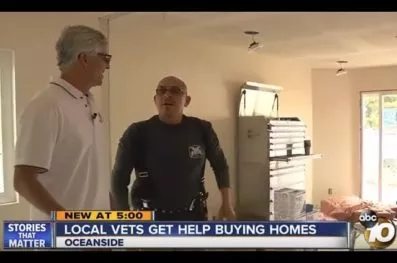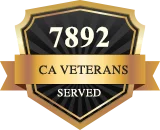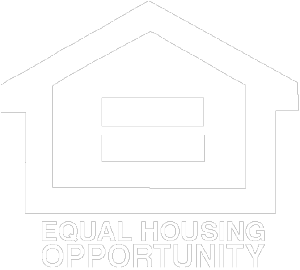Mello Roos vs. HOA

Va Loans
REAL ESTATE FOR VETERANS
Mello Roos vs HOA

Peter Van Brady
Founder of SoCal VA Homes
Author: Avoiding Mistakes & Crushing Your Deals Using Your VA Loan
This is from Chapter 5 of my book sold at Barnes & Noble, Avoiding Mistakes & Crushing Your Deals Using Your VA Loan
 The Pros and Cons of HOAs & Mello Roos “taxes.”
The Pros and Cons of HOAs & Mello Roos “taxes.”
Home Owners Associations or “HOA”s are the governing body that oversees a “community” of housing units, whether they are condominiums, co-operatives or single family residences. The HOAs are typically responsible for “managing” the property management company that cares for common areas which can include landscaping, buildings and recreational facilities too. The HOAs operate like a government for the community as they set and adjust policies and manage budgets for community expenses.
As a “VA home buyer” using your VA home loan benefit, you must determine whether you want to own a property that has a HOA. Ownership of a condominium will include the governance of and your payments to an HOA.
Let’s talk about the possibility of buying a VA Approved condo using your VA Home Loan Benefit. First, you have to make sure that you can actually obtain VA financing on the condo that is managed by an HOA. Condominium projects must apply for and obtain an approval from the Department of Veterans Affairs. The VA doesn’t automatically assume that the real estate developer and the HOA have their act together! If you google "VA condo search,” you'll reach the VA portal.
Place the project name as it is officially known in the search bar and the portal will tell you whether it's “VA approved” and whether you're going to have any challenges in terms of getting a VA home loan on that property. If it's a single-family residence and not “parceled” in any way as a condo by the original developer, you're not going to have any problem with the property itself. You won’t need it to be “VA approved.” There might be problems with the actual collateral or condition of the property, but that’s a different issue.
Some Condos Won't Be...
Some condos are not “VA approved” because the builder doesn’t see the cost of obtaining the VA approval as a worthwhile expense. If the VA is going to allow a loan on a property within a “community” built by a real estate developer, the VA has many property standards and HOA standards that must be met. The builder may see enough volume of conventional home buyers buying their units, so they simply won’t bother with the VA approval process.
The Painful Truth of HOA Budgeting
During “The Financial Crisis,” many condos were forced into foreclosure, resulting in a dramatic reduction of revenue from the owner’s monthly payments to the HOA. In many projects, a large percentage of the total number of units was foreclosed upon. In managing their HOA budget, the managers didn't expect a huge reduction to their income from HOA fees, and they had to make adjustments. To continue to provide services to those home owners still in the community, and to project and maintain the HOA budget, managers had to raise prices and increase the HOA fees.
This happened all across Southern California and all across the country. In order to financially resurrect entire communities managed by HOAs, managers had to raise prices to match budgets. In the midst of all that, there were a lot of investors who purchased these properties and paid cash. You might perceive that as beneficial as the HOA revenues began to climb again. However, this event magnified an already difficult problem in these communities still suffering from HOA budgeting issues. The larger concentration of investor owned units created the following financing problems.
Owner Occupies vs Investor Owned Problems
Here is the big problem: FHA is the primary source of financing for most borrowers who consider purchasing a condo. This is because of the lower prices associated with condos. Lower prices mean smaller down payments and that attracts FHA borrowers. FHA, and conventional financing, requires a minimum number of owner-occupied units in relationship to investor-owned units. Without meeting this minimum, no loan approval will be granted. The number of investor owned units in many projects increased dramatically when these foreclosed units became available and were purchased for cash at deeply discounted prices.
HOA Reserve Requirements
FHA also requires a minimum amount of reserves in the HOA budget. They want to prevent the HOA from poorly running the project and thereby deteriorating property values which would increase their risk of loss on a foreclosure. If the HOA loses lots of income resulting from foreclosures, they are less likely to properly budget maintenance projects such as road re-surfacing, exterior painting, landscape, amenities maintenance, etc. The bottom line is that foreclosures really challenge HOA budgets, which reduces reserves below FHA minimum requirements, creating a “liquidity crisis.”
Liquidity in this case can be defined as the owner’s ability to easily sell their home (at a reasonable price) while the buyer facilitates the other end of the transaction by using traditional financing, likely FHA. These properties can't be bought and sold if there is not financing, typically FHA financing. And FHA financing wasn't going to happen unless the proper reserves were in the HOA budget, and often, hundreds of thousands of dollars in reserve are needed in the HOA budget. These communities needed enough cash buyers to come in, buy, and to occupy, thereby correcting the “owner occupancy ratio.”
Raising HOA Fees
Communities then began raising monthly dues, and the homeowners who were barely making it defaulted on the higher HOA fees, which added to the foreclosures. Ultimately, the monthly HOA fees in these communities experienced dramatic increases. With appropriate budgeting, the reserve requirements and owner-occupancy ratios were re-aligned by market forces to create “liquidity” again. At that point, financing options resurfaced. However, HOA fees are now, by and large, MUCH higher than before 2008. So you now have to ask yourself, “What am I getting for my $250-$500 a month HOA fee?” On the high end, you might be able to take advantage of clubhouses and community pools, sometimes multiple community pools, tennis courts, and great landscaping. In less attractive projects, with lower HOA fees, you may only get a parking lot and a carport. As a potential buyer, you’ll have to evaluate the merits of the benefits offered in the community vs. the HOA fees.
The HOA Rules ALL!
All homeowners’ associations have CCRs, which stand for Conditions, Covenants, and Restrictions. There may be “by laws” for the project too. These are the documents guiding the governing body, usually the Board of Directors of the HOA, and the home owners. The board is typically comprised of the homeowners themselves. Sometimes there may be an external property management company that sits on the board or is directed by the board to carry out maintenance objectives, etc. The board makes decisions regarding things like what color you can paint your house or what trees to plant in common areas. Often they are good decisions, but you may not always agree with them.
They are essentially telling you what you can do and what you can’t do, and most people would prefer that nobody tells them what to do! In properties that have HOAs, you can get annoying neighbors who complain about all sorts of stuff! They often wage little micro-political struggles within the board or against specific board members, especially during elections. It can get strange, and you won’t know it before you buy in that community.
Condos: Last to Go UP, First to Go Down...
Concerning appreciation and depreciation of the property value, historical data suggests that condos are going to be the last to appreciate and the first to depreciate. Be cautious if you’re thinking that you’ll definitely make money on such a property purchase. Don’t PLAN on it, but instead be grateful if and when it occurs. You want to be cautious about expectations of making money on real estate. Make your decisions based on pride of ownership, affordability, and tax consequences, before you anticipate profit.
Affordability: Would You Be Better Off Buying A Single Family Residence?
Also, you really want to be concerned about affordability as it relates to how that monthly HOA fee factors in your affordability picture. Certainly the underwriter’s conclusion about your affordability picture should be concerning as they are thinking the same thing you are - can you afford all this? As we look at HOA fees in Southern California and all communities, they are not insignificant anymore. There might have been a time we could ignore them, but that’s not the case today. There's a “value proposition,” and there are affordability concerns that you have to measure, as you make your purchase decisions. As an hypothetical example, let’s say you go out in the marketplace and you find a $350,000 condo with a $350/month HOA fee.
When you factor in your affordability, contrast that potential condo purchase with a $390,000 single-family residence with no HOA fee. Your overall payments will be the same. Perhaps the single family home has more potential for appreciation. So, as it relates to your property search, you may discover potential communities where you're going to look at a condo and other locations where you’ll decide you don’t see the value. You have to weigh all that when making your decision. Think seriously about how specific HOAs factor into your decision.
 Mello Roos “Taxes”
Mello Roos “Taxes”
Mello Roos “taxes” are actually bond payments. When new communities are being built without the supporting tax infrastructure to finance the “build out” of the city, the city has to issue a Mello Roos bond to pay for the new infrastructure such as roads and schools. These municipal bonds are “floated” or issued by investment bankers to the investment community. Investors buy the bonds, and the sales proceeds, or money received from the issuance of the bonds, stacks up in a fund. The developers use those funds to develop the entire communities’ infrastructure. They build the middle school, the grammar school, the high school, and all the roads, etc.
In a Mello Roos tax district, each homeowner’s property tax assessment includes the Mello Roos payments to pay their portion of the bond payment. All the homeowner’s payments are aggregated together to make the total bond payment to the investors, typically for a term of twenty to twenty five years. At the end of the term, the investors have received their principal and interest.
We don't know if the IRS has ever challenged the definition of “property taxes” vs. “bond payments,” but everybody we know, including all of our CPAs, endorses deducting the Mello Roos payments as a tax-deductible expense. (Again, we are not offering tax advice. Please consult your CPA or tax professional regarding this issue.)
Is a Mello Roos “tax” good or is it bad? It depends on your perception. It's going to increase your property taxes, typically double what other homeowner’s may pay. This makes owning your property more expensive. However, you're going to get a lot for that! Typically you're getting a brand new community infrastructure. A lot of these communities build great parks, sports programs, new facilities, new schools and classrooms. The advantage of the Mello Roos tax is that you can see what it pays for - great new schools, new roads, etc. The disadvantage is that it is costly. And it’s coming out of your taxes. And that's going to affect your affordability.
You should be comparing the Mello Roos community over here vs. the non- Mello Roos community across town. What are the affordability disadvantages compared to the “value” advantages. Additionally, there’s certainly going to be some consideration regarding property values as these Mello Roos taxes mature and the bond payments terminate.
Imagine you are buying a property where your tax base is currently 2-1/2%. But three years from now, when the bond payments to the investors conclude, that tax base is going to be 1%. What do you think that's going to do to property values? Obviously the home will be more affordable, so buyers will view that as a benefit and pay for it. Demand increases appreciation!
We always suggest that you determine if you meet the VA loan requirements before making an offer, HOA, Mello Roos or not! For assistance in finding the right community and the right property for you, let So Cal VA Homes help. Call (949) 268-7742.
As Seen on ABC 10 5:00 O’Clock News












